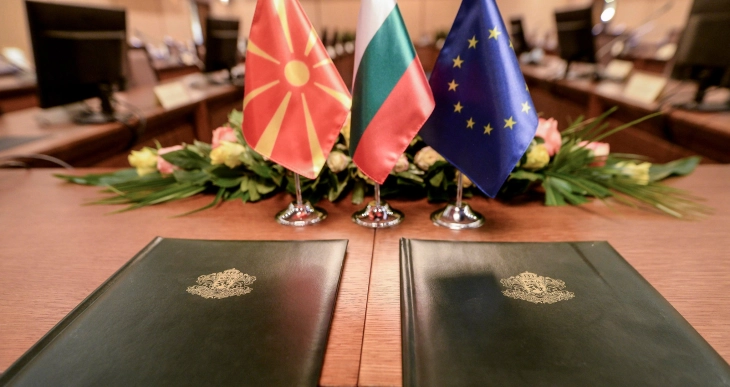Bulgaria, North Macedonia must resume cooperation despite election outcome: analysts

Skopje, 6 October 2022 (MIA) - Regardless of the election outcome of the October 2 fourth early parliamentary elections in Bulgaria and what kind of government will be formed - political or caretaker - no change can be expected in Sofia's positions toward Skopje, political analysts have told MIA.
Political analyst Gjorgi Spasov, who also served as ambassador to Bulgaria, says no one has the power to change these positions. They are all obligated under the Declaration of the Bulgarian Parliament and the French Proposal, which had been also approved by North Macedonia.
"Macedonia will be under pressure to amend the Constitution, followed by a long period of membership talks during which the relations between the two countries could improve. Both countries now are already feeling fatigued by the empty rhetoric and the same things over and over again being on repeat becomes boring. Facing the threats of possible world war, the EU and the United States will exert pressure to make sure disputes are closed that otherwise hinder Macedonia's full integration into the EU. In the dispute, Bulgaria is not the favorite one either of the United States or of the other EU members, and Macedonia should use this as leverage," Spasov says.
In times of energy, economic and security crisis given the war in Ukraine and how Bulgaria's possible failure to form a government might be reflected in the country and the region, the former ambassador says it is still not clear whether it is better for a country not to have a government, to have unstable and blocked government or to have a bad government.
"For us, as a neighbor, it would be nice for Bulgaria to form a stable government without ultranationalists in it and cooperation to continue in all the projects for which agreements were reached with the Kiril Petkov government. But, it is least depended on us. We have to cooperate with every government they will elect. The lack of capacity of the 'There's Such People' party to form a government or to be part of some functioning government has cost them to disappear from the Bulgarian political scene. Probably all the other parties in Bulgaria will learn the lesson," stresses Spasov.
Former ambassador to Bulgaria Marjan Gjorchev echoes the same sentiment saying no changes are expected toward North Macedonia regardless of whether a broad coalition government will be formed or whether President Rumen Radev will be at the helm of a caretaker management of the country.
"All of us here, in the Macedonian state, have to understand once and for all that the centuries-long Bulgarian strategy toward the so called Macedonian issue has been funded scientifically, passed from generation to generation through the Bulgarian educational system and social engineering. Not a single political structure in Bulgaria has the strength to get out of that 'social scheme' in which we, the Macedonians, the state, the nation and the language, are perceived exclusively through the prism of our existence since August 2, 1944 as a state and as a nation. It is a huge burden on the shoulders of the Bulgarian politics. Bulgaria will take a long time to come to a conclusion over the necessity of an equal and symmetric dialogue in the two-way Macedonian-Bulgarian communication," Gjorchev underlines in a statement to MIA.







